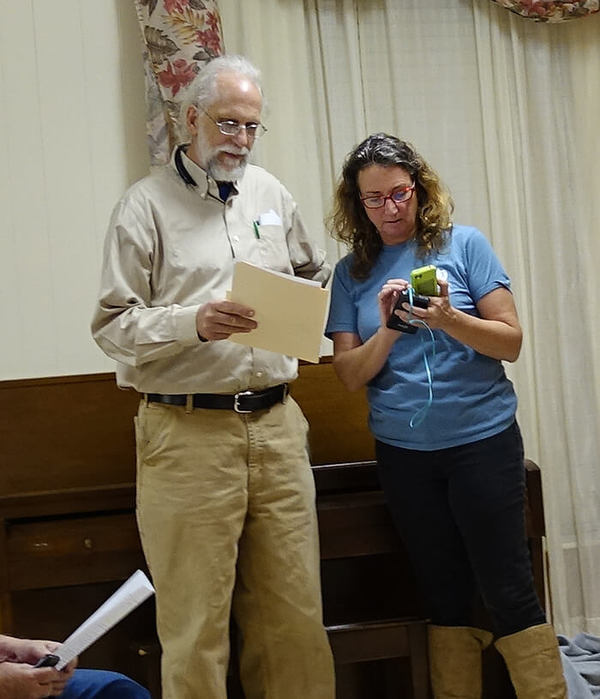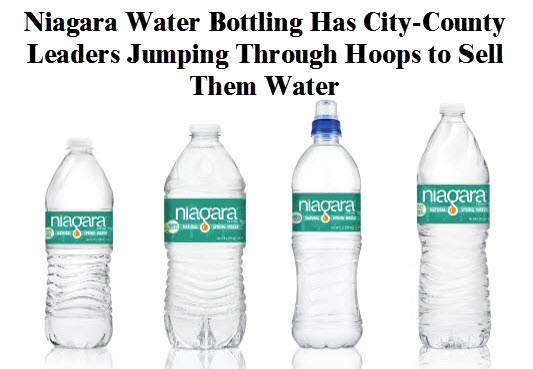This fact sheet from a month ago says the Georgia Environmental Protection Division (GA-EPD) will hold “a public meeting” and “Comments will also be accepted at TwinPines.Comment@dnr.ga.gov. It’s not clear what they will do with comments if you go ahead and send them to that address. Since any such correspondence would be public record, retrievable via open records request, it would be odd if GA-EPD did not consider those comments in their permit review process.
![[GA-EPD Fact Sheet, TPM Mine, and Okefenokee NWR]](https://www.wwals.net/pictures/2021-02-08--tpm-ga-epd/many.jpg)
GA-EPD Fact Sheet, TPM Mine, and Okefenokee NWR
Checking with GA-EPD this morning, the public hearing is not expected to be scheduled for several months yet, because they’re still waiting for documents that the miners did not previously supply. Plus they are communicating with the Army Corps about documents the Corps received before abdicating responsibility. Apparently the GA-EPD Land Division is taking the lead, perhaps because this is a mining project, near the Okefenokee Swamp, which is the headwaters of the Suwannee River.
It’s good GA-EPD is being thorough, although this last paragraph casts some doubt on that: “ Any additional mining operations not included in the demonstration area will be considered new and unique and will require a new set of permits and a full permitting process.”
![[Map: Twin Pines Minerals land and Okefenokee NWR]](https://www.wwals.net/pictures/2021-02-08--tpm-ga-epd/map-tpm-onwr.jpg)
Map: Twin Pines Minerals land and Okefenokee NWR
in the WWALS
map of the Suwannee River Wilderness Trail and the Okefenokee NWR Canoe Trails.
Sure and if that happens the miners will claim they have sunk costs and they’ll sue if they don’t get further permits. So expansion should be considered along with the original permit applications. And it’s much better to nip this whole thing in the bud.
Here are four of the five permit applications to GA-EPD from Twin Pines Minerals, LLC:
https://wwals.net/2020/11/05/twin-pines-minerals-permit-applications-to-ga-epd/
Since GA-EPD has confirmed they did actually receive an Air Quality permit application, I guess it’s time for me to request that one again.
GA-EPD has a Twin Pines Minerals, LLC web page, whic currently has a link to this one one-page PDF fact sheet.
![[Twin Pines Minerals LLC Permitting Fact Sheet]](https://www.wwals.net/pictures/2021-02-08--tpm-ga-epd/Twin-Pines-Minerals-LLC-Permitting-Fact-Sheet-0001.jpg)
Twin Pines Minerals LLC Permitting Fact Sheet
PDF
GEORGIA
DEPARTMENT OF NATURAL RESOURCES
Environmental Protection Division
Twin Pines Minerals, LLC
Permitting Fact Sheet
Twin Pines Minerals, LLC has submitted environmental permit applications to the Environmental Protection Division (Division) proposing a demonstration project for mining heavy minerals sands near St. George, Charlton County, Georgia. The northern boundary of the site is located approximately 2.9 miles southeast from the nearest boundary of the Okefenokee National Wildlife Refuge.
How many permit applications have been submitted?
Twin Pines Minerals, LLC has applied for environmental permits from all branches of the Environmental Protection Division (Division). These permits are the same as those that may be required for any surface mine: NPDES Industrial Stormwater, NPDES Industrial Wastewater, Groundwater Withdrawal, Air Quality, and Surface Mining Permit. The Division is early in the process of conducting a thorough review of each of the applications received.
How will the Division ensure the Okefenokee is being protected?
The Surface Mining Land Use Plan (MLUP) will require an addendum detailing the environmental provisions for protection of the environment and resources of the State. Once this environmental provision addendum is received, the Division will conduct an initial review and ensure it is complete and adequate, with a focus on how the project’s proximity to the National Wildlife Refuge may impact the area’s groundwater hydrology.
Will public be able to provide comments?
Yes. After the Division has reviewed the MLUP and the environmental provisions addendum, a public meeting will be held to receive comments on these documents and to provide an update on the permitting process. Comments will also be accepted at TwinPines.Comment@dnr.ga.gov. We will then consider all public comments and request the applicant make any necessary changes to address those comments. Please note, the Division may be unable to respond individually to each comment received. However, we will post a collective response to comments on our website after the official comment period closes.
Once the MLUP and the environmental provisions addendum are finalized, the Division will proceed with the draft permit process, including a public notice and comment period on the Surface Mining permit as well as any additional public comment periods required for the other permits. These permits are for the proposed 740-acre demonstration mining area.
Will the mine be able to expand after it is permitted?
Any additional mining operations not included in the demonstration area will be considered new and unique and will require a new set of permits and a full permitting process.
February 8, 2021
-jsq, John S. Quarterman, Suwannee RIVERKEEPER®
You can join this fun and work by becoming a WWALS member today!


![[2019 and 2020]](https://www.wwals.net/pictures/2021-03-03--capitol-conservation-day/many.jpg)

![[Mine, Swamp, River, Bird]](https://www.wwals.net/pictures/2020-12-29--okefenokee-news/many.jpg)
![[Dateline, Op-ed]](https://www.wwals.net/pictures/2020-12-23--vdt-okefenokee-suwrk/manyrot.jpg)
![[Great Blue Heron, Suwannee River, Okefenokee Swamp, TPM mine site]](https://www.wwals.net/pictures/2020-11-17--gwc-dd/many.jpg)
![[TPM mine site with ONWR on left]](https://www.wwals.net/pictures/2020-11-06--tpm-drone/tpm-site-onwr-left.jpg)
![[Great Blue Heron flying, Suwannee River, Okefenokee Swamp, 2019-12-07]](https://www.wwals.net/pictures/2020-11-17--gwc-dd/2019-12-07--jsq-gbh-suwannee-river-okefenokee-with-boaters.jpg)
![[US 41, NSRR, US 84, Knights Ferry, Withlacoochee River]](https://www.wwals.net/pictures/2020-10-30--sample-vote/many.jpg)

![[Graph 93-percent-AGAINST 10 14 20-0001]](https://www.wwals.net/pictures/2020-10-19--m-cores/Graph_93-percent-AGAINST_10_14_20-0001.jpg)